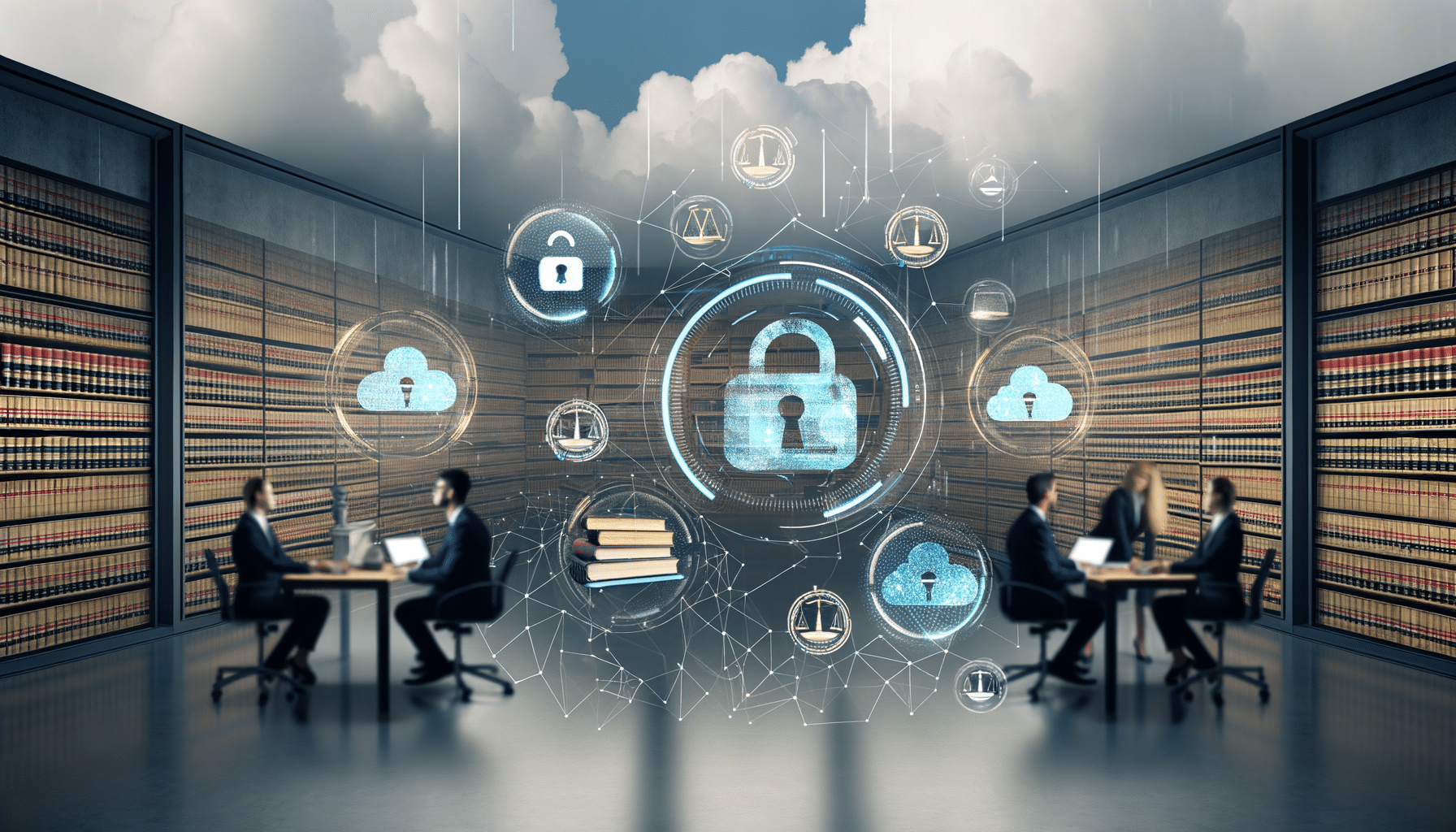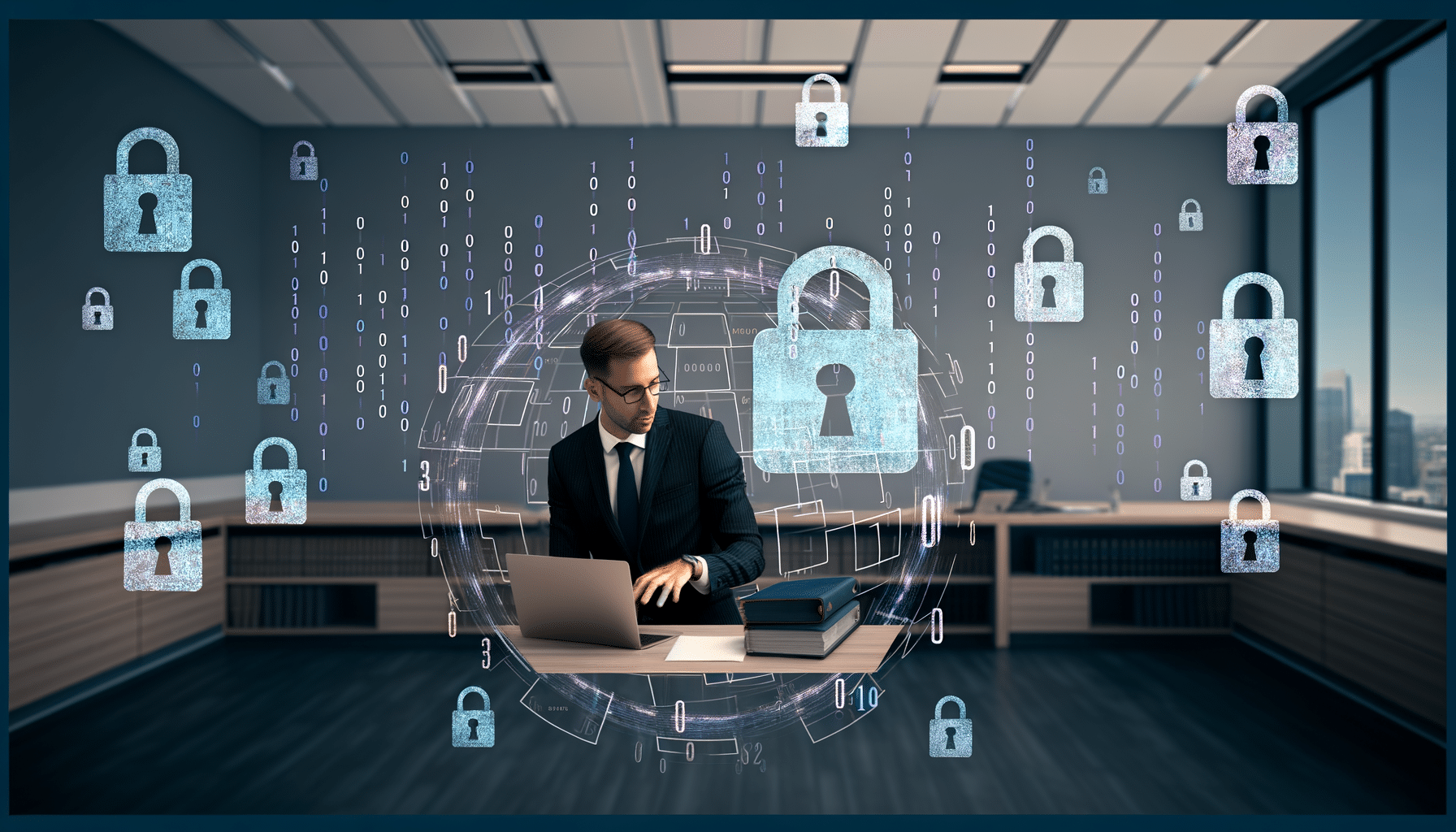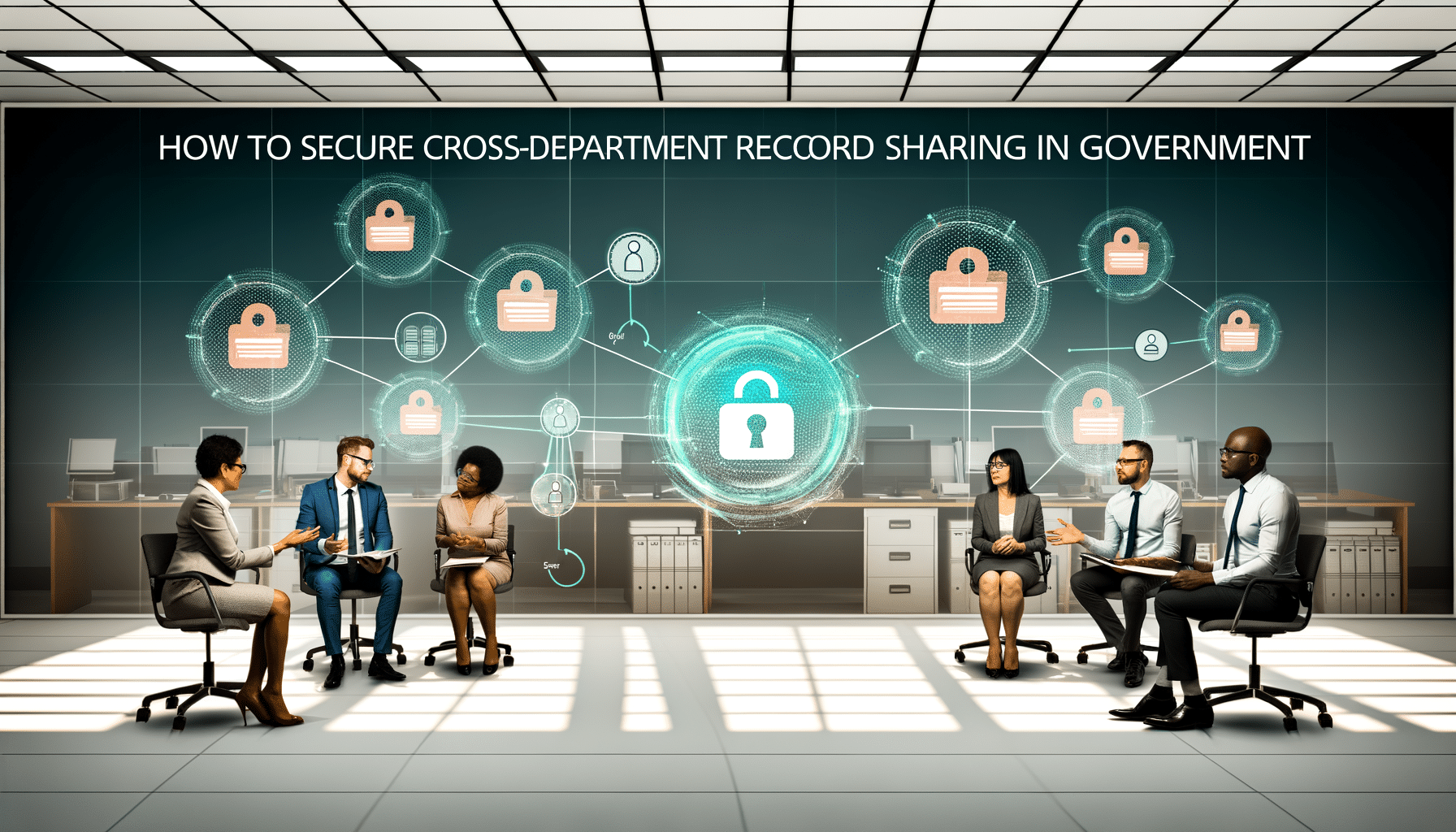- Security Best Practices
- September 2, 2024
The Growing Role of Cybersecurity in Legal Record Keeping

As I delve into the intricate world of legal record keeping, one truth is crystal clear: protecting sensitive information is more critical now than ever before. In an age where data breaches loom on the horizon, cybersecurity has evolved into an essential component of safeguarding legal records. At RecordsKeeper.AI, I have witnessed firsthand how cybersecurity can transform and protect the sphere of record management. Allow me to take you on a journey through the growing significance of cybersecurity in the realm of legal records and what it means for businesses and individuals alike.
The Imperative Of Cybersecurity In Legal Records
Legal records are among the most sensitive types of data, housing confidential information from corporate contracts to personal client details. A breach in this domain is not just embarrassing; it can be cataclysmic. Companies stand to lose trust, face legal battles, and endure substantial financial losses. It is these high stakes that amplify the need for robust cybersecurity measures.
Traditionally, securing legal records meant locked file cabinets, restricted office access, or even fireproof safes. Today, we face a different landscape—a digital one where robust cybersecurity frameworks are not just preferable; they are indispensable.
Identifying Key Threats
The threats posed to legal records are multifaceted:
- Phishing Attacks: Scammers often target law firms with emails that mimic legitimate clients or colleagues.
- Ransomware: Malicious software that encrypts files, demanding a ransom for their release. This can paralyze operations and compromise sensitive data.
- Data Breaches: Unauthorized access to sensitive information can occur due to weak passwords or exploitable networks.
- Insider Threats: Disgruntled employees or partners with access to records can intentionally harm data integrity.
The question then becomes: how do we strengthen the defences against these threats?
Implementing Cybersecurity Best Practices
At RecordsKeeper.AI, ensuring cybersecurity in legal records involves adopting a proactive and comprehensive approach. Here’s a look into some best practices that can shield your sensitive information:
1. Comprehensive Encryption
Encryption secures data, making it unreadable without the proper decryption key. It is crucial for data both at rest and in transit. This means whether data is being stored or sent across networks, it remains protected.
2. Regular Security Audits
Continuous assessments of security infrastructures help identify and address vulnerabilities before they are exploited. I encourage all legal entities to conduct regular audits to ensure their cybersecurity measures are up to date.
3. Access Control and Management
Limiting access to sensitive records to only those who really need it is vital. By employing role-based access and ensuring robust authentication measures like two-factor authentication, you can significantly reduce the risk of data breaches.
4. Effective Training and Awareness Programs
Employees are often the first line of defence. Providing comprehensive training on recognizing cyber threats and understanding secure practices is crucial in mitigating human error.
The Role Of AI and Blockchain
I’m proud to say that RecordsKeeper.AI stands at the forefront of integrating AI and Blockchain to enhance cybersecurity for legal records. AI not only helps in detecting unusual patterns that may signal a breach but also automates the complex task of compliance management.
Blockchain, on the other hand, introduces an additional layer of security by creating immutable and tamper-proof records. This is particularly crucial in legal settings where the integrity of data cannot be compromised.
Conclusion: A Collaborative Effort
Safeguarding legal records in the age of digital vulnerability requires a collective effort to innovate and adapt. By embracing cybersecurity as a core component of record management, we not only protect our data but also the trust of those who depend on us.
I encourage you to explore how RecordsKeeper.AI’s solutions can enhance your cybersecurity measures and redefine your record management practices. Together, let us forge a future where your sensitive legal records are as secure as they are accessible.
Join me on this journey, and let’s safeguard the digital era, one record at a time.
Toshendra Sharma is the visionary founder and CEO of RecordsKeeper.AI, spearheading the fusion of AI and blockchain to redefine enterprise record management. With a groundbreaking approach to solving complex business challenges, Toshendra combines deep expertise in blockchain and artificial intelligence with an acute understanding of enterprise compliance and security needs.
Related Posts

Why Law Firms Must Prioritize Data Encryption
Understand the critical role of data encryption in securing sensitive legal information.
- October 1, 2024

How to Secure Cross-Department Record Sharing in Government
Learn how to implement secure record-sharing practices across government departments.
- June 7, 2024
Archives
- December 2024
- November 2024
- October 2024
- September 2024
- August 2024
- July 2024
- June 2024
- May 2024
- April 2024
- March 2024
- February 2024
- January 2024
- December 2023
- November 2023
- October 2023
- September 2023
- August 2023
- July 2023
- June 2023
- May 2023
- April 2023
- March 2023
- February 2023
- January 2023
- December 2022
- November 2022
- October 2022
- September 2022
- March 2019
Want to get more content like this?
Signup to directly get this type of content to your inbox!!
Latest Post
Organizing External Auditor Access
- December 22, 2024
Document Control in Manufacturing Plants
- December 21, 2024
Handling Rush Financial Report Requests
- December 20, 2024
Managing Record Access After Staff Changes
- December 19, 2024





